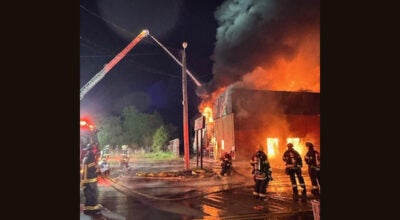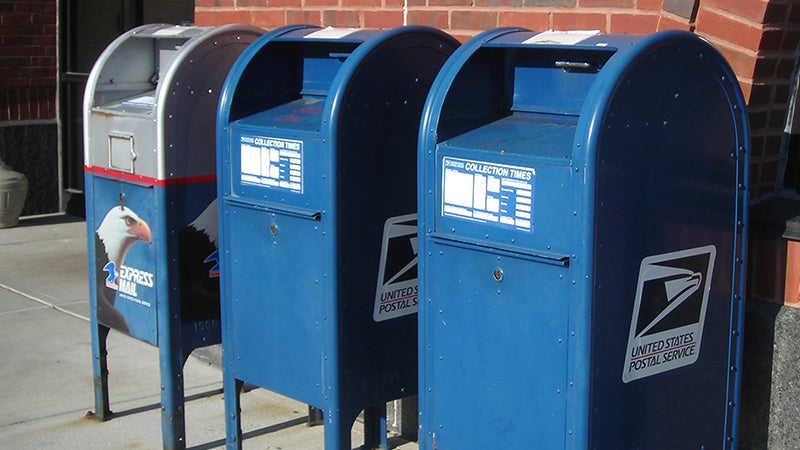COVID-19 vaccine for 12 and up expected to get approval soon
Published 10:57 pm Monday, May 3, 2021
|
Getting your Trinity Audio player ready...
|
The state’s vaccine coordinator said health officials are making plans to provide children ages 12 and up with a COVID-19 vaccine as it expects federal emergency use authorization to come for Pfizer BioNTech and Moderna in a matter of weeks.
However, The New York Times reported May 3 that such authorization for the Pfizer vaccine could come from the Food and Drug Administration as soon as next week.
Dr. Danny Avula, in an April 29 conference call, said the Virginia Department of Health has been contacting superintendents around the state to set up possible vaccination clinics at schools. Any vaccination of someone under 18 would need to have a parent present.
“The CDC continues to affirm the likelihood that we will have an approved vaccine for those 12 and up some time (in) mid-to-late May,” Avula said. “That’ll start with the Pfizer. They anticipate that the Moderna will be maybe two to three weeks behind that. But that means that that’s a large segment of our population that will be newly eligible in a month or less.”
Avula said that would allow for vaccinations in that age group to take place in the last three weeks of school for many Virginia students.
“We are meeting with all the superintendents in the coming week to just talk them through the options so that once we do get … approval, we probably have a three-week window before schools go out for the summer,” Avula said, “so there may be a real opportunity to do onsite, school-based vaccination for that population.”
The state health department is also recruiting pediatricians to be approved vaccination sites through the Centers for Disease Control and Prevention process, and once FDA approval comes, those 12 and up, accompanied by a parent, can make appointments to get vaccinated with the Pfizer vaccine or, a few weeks later once the expected FDA approval comes, with the Moderna vaccine.
A strategy shift on vaccinations
Avula said demand for the vaccine has peaked across the state, and has prompted health officials to shift their strategy on getting more people to accept and take the vaccine in an effort to reach herd immunity — thought to be roughly 70% of the population.
As of May 3, 45.1% of Virginians had received at least one dose of the vaccine, and 32% have been fully vaccinated.
In Western Tidewater localities, Isle of Wight County residents make up the highest percentage of people who have received at least one dose (43.3%), and the highest percentage of those fully vaccinated (31.6%). Still, that falls below statewide percentages of those vaccinated.
Franklin has the second-highest percentages in the health district, with 38.6% receiving at least one dose and 27.8% being fully vaccinated.
Southampton County has the lowest percentage in the region of those vaccinated — 34.8% having received at least one dose and 24.3% being fully vaccinated. In Suffolk, 35.6% of residents have received at least one dose, while 25.8% are fully vaccinated.
“Different parts of the state have been meeting demand at different points,” Avula said. “But really, this past weekend was the first time that (in) every part of the state, we really saw demand peak.”
Avula said the state is moving to more targeted and neighborhood-focused vaccine efforts.
The Western Tidewater Health District is planning a large-scale homebound population campaign for all four of its localities similar to the Suffolk Meals on Wheels campaign that vaccinated 23 city residents earlier this year.
The district is also planning more pop-up vaccination clinics for the second half of May heading into June, and four churches in Suffolk are hosting vaccination clinics this week — Oak Grove Baptist Church May 3, First Baptist Church Mahan Street May 4, East End Baptist Church May 5 and Mount Sinai Baptist Church May 6.
Avula said it is important to make sure people understand their options, and that getting a vaccination is as convenient as possible. He said vaccinations should be “more targeted, more tailored, more neighborhood-focused, (with) more vaccines coming through primary care providers, and really allowing people opportunities not only for the convenience of vaccinations, but also for the opportunity to talk through questions and hear from somebody that they trust.”
He said vaccine doses would be reduced this month to allow for smaller providers to be able to get the vaccine and administer them. Typically, the Pfizer vaccine comes in trays of 1,170 doses, but in some cases, that will get reduced to 460 doses, or even 150 doses.
“That will make it more and more possible for smaller group practices to be able to receive vaccine,” Avula said.
He said the messaging would also change to tell providers that it is OK to have vaccine doses and be able to carry them over into the next week, as long as it is stored properly.
He also addressed the roughly 160,000 state residents who have not received a second dose of a COVID-19 vaccine within 42 days of their first.
Avula said some people may not have been enthusiastic in the first place about getting the vaccine and were leery of possible side effects of a second dose. He said other reasons for people not getting a second dose could be because providers didn’t have enough vaccines and the state was telling people to schedule second dose appointments after getting the first dose.
The statewide call center has been making outbound calls to those who have lagged in getting a second dose. Those vaccinated with Pfizer are supposed to get a second dose three weeks after their first. For people vaccinated with Moderna, their second dose is supposed to come four weeks later. The CDC provides a grace period of up to six weeks.






